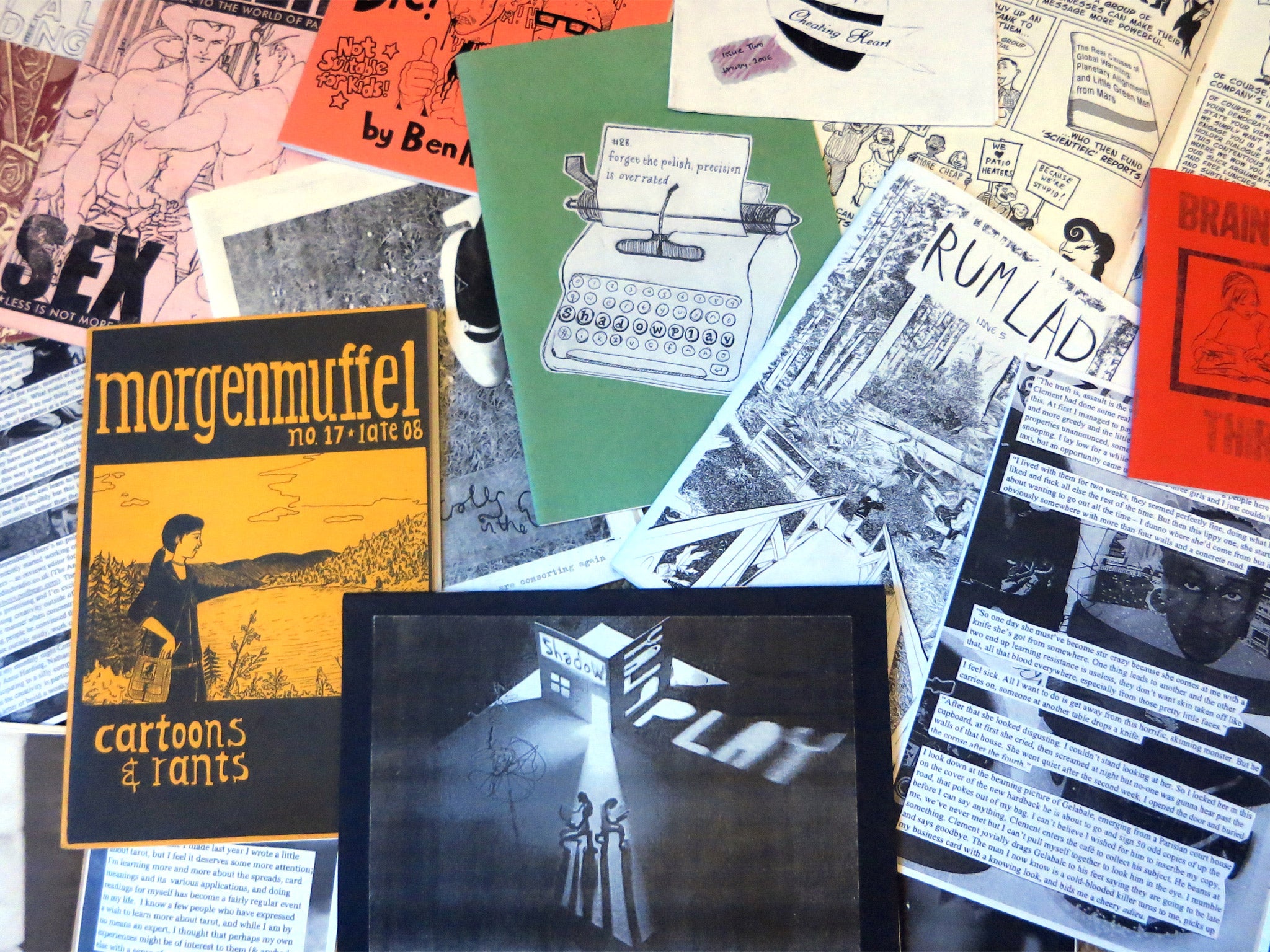DIY Cultures festival: The UK's fanzine scene remains a thriving subculture
Zine creator Alex Lawson explores the appeal of DIY publications both on and offline

Your support helps us to tell the story
From reproductive rights to climate change to Big Tech, The Independent is on the ground when the story is developing. Whether it's investigating the financials of Elon Musk's pro-Trump PAC or producing our latest documentary, 'The A Word', which shines a light on the American women fighting for reproductive rights, we know how important it is to parse out the facts from the messaging.
At such a critical moment in US history, we need reporters on the ground. Your donation allows us to keep sending journalists to speak to both sides of the story.
The Independent is trusted by Americans across the entire political spectrum. And unlike many other quality news outlets, we choose not to lock Americans out of our reporting and analysis with paywalls. We believe quality journalism should be available to everyone, paid for by those who can afford it.
Your support makes all the difference.Scrawl, cut, stick, print, fold, staple. It's a ritual for every fanzine editor. Fanzines, for those without paper cuts, are self-published magazines on subjects as varied as secret mischief caused while temping, and personal insights into depression, as well as to odes to Bruce Springsteen's elbows.
They emerged in the Seventies in an inky-fingered protest by punks against the mainstream and have been painstakingly crafted – and printed off on work photocopiers while no one is looking – ever since.
Against the odds, the UK's zine scene remains a thriving subculture in a world that has otherwise moved online. This weekend, zinesters will be heading to DIY Cultures, an annual fanzine festival in east London complete with zine-making workshops and a jam-packed line up of stallholders. It comes soon after a similar shindig in Sheffield and precedes the Dublin Zine Fair, taking place in August. On 21 July, International Zine Library Day will see creators attempt to write and publish new zines within 24 hours.
On the surface, the effort it takes to hand-craft and distribute fanzines in the post might seem baffling when the process could be so much quicker and cheaper online. Why seek out a zine dedicated to your football club when you can get live updates on Twitter? Why pick up a music zine when you can have a quick swipe on to the Spotify app?
Chella Quint, co-organiser of the Sheffield Zine Fest and editor of Adventures in Menstruating, says: "Zines are here to stay. People experience real pleasure and satisfaction from holding something they've created and printed themselves, that they can physically hand to someone."
Isy Flynn, editor of established comic zine Morgenmuffel, says: "I love what you can do with a paper zine. The feel and the aesthetics, leafing through, reading it on the loo. A magazine has an editor, a budget, ads and an agenda that includes being focused on sales. A zine is just whatever its creator wants it to be."
Buying and selling zines is now easier, with online payment tools and stores such as PayPal and Etsy replacing old-school stamped, addressed envelopes and ailing independent record shops.
Rum Lad creator Steve Larder insists that "there's a greater sense of quality control in zine making, given the time and effort involved" than there was in the pre-online era, when music news dominated zines.
My own music and musings zine, ShadowPlay, launched in 2003, has led to spin-off gigs, craft nights and thousands of touching letters and mix tapes exchanged with zinesters worldwide.
Opinions are split over online's influence in zines, not least in football. Middlesbrough FC zine, Fly Me to the Moon, launched in 1988, has an uncertain future now that social media increasingly dominates football fandom. Editor Robert Nichols says: "I don't like the idea of putting the fanzine online – for me, it should be something people buy at the match and put in their pocket for future reading."
Other zines have found a new lease of life online. Sheffield Wednesday zine War of the Monster Trucks has found a renewed fan base since its digital rebirth in 2011. "Social media is much more alive and flexible," says editor Steve Walmsley. "While we romanticise going back to print, deep down we know we wouldn't do it."
Of course, the two aren't mutually exclusive. The comedic and chaotic spirit of zines can still be felt online through high-profile sites such as Vice and Buzzfeed. At the same time, attendance at zine fests has grown as promoting them has become simpler online. There's even a fanzine maker's social network, We Make Zines.
Fanzines are perhaps unlikely to return to being a news hub with print runs in their thousands. But as an intimidate bond between writer and reader, using an aesthetically pleasing avenue, they may just have found their place in the 21st century.
Join our commenting forum
Join thought-provoking conversations, follow other Independent readers and see their replies
Comments